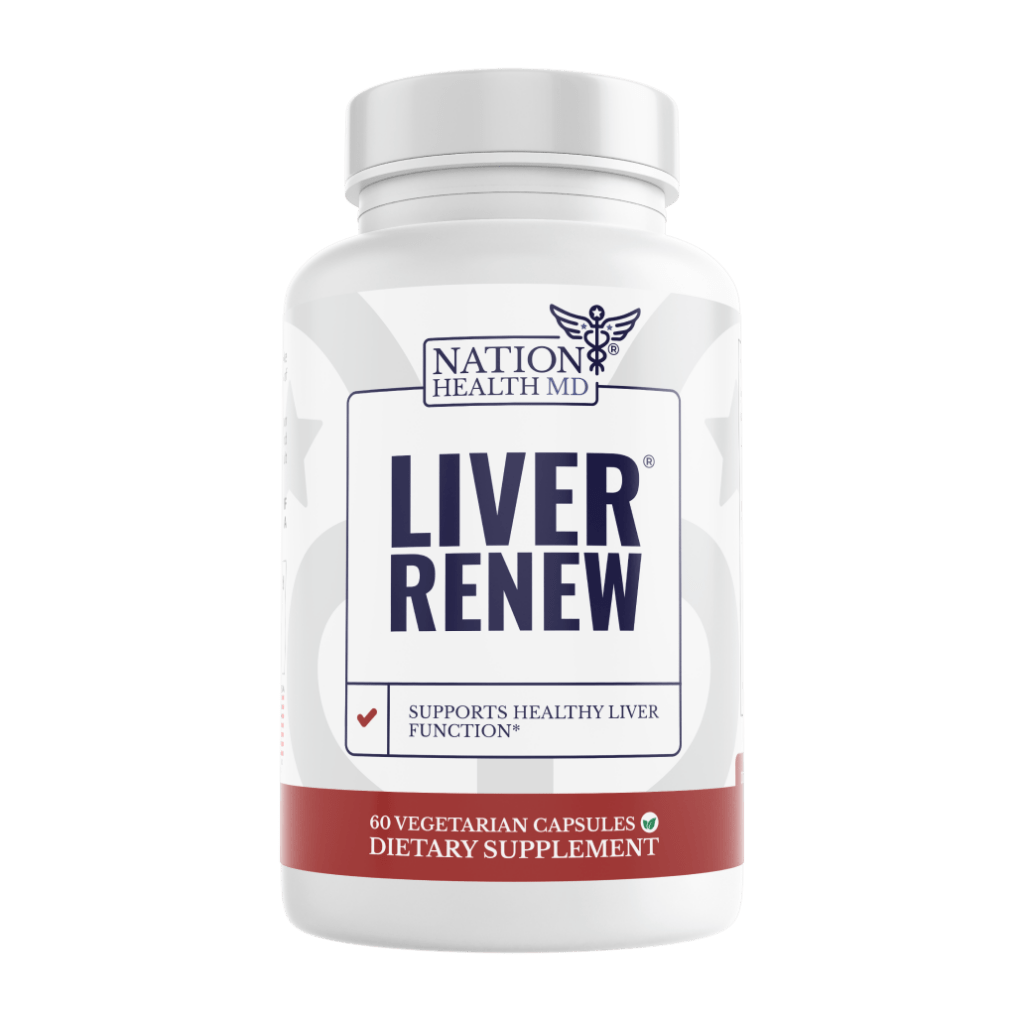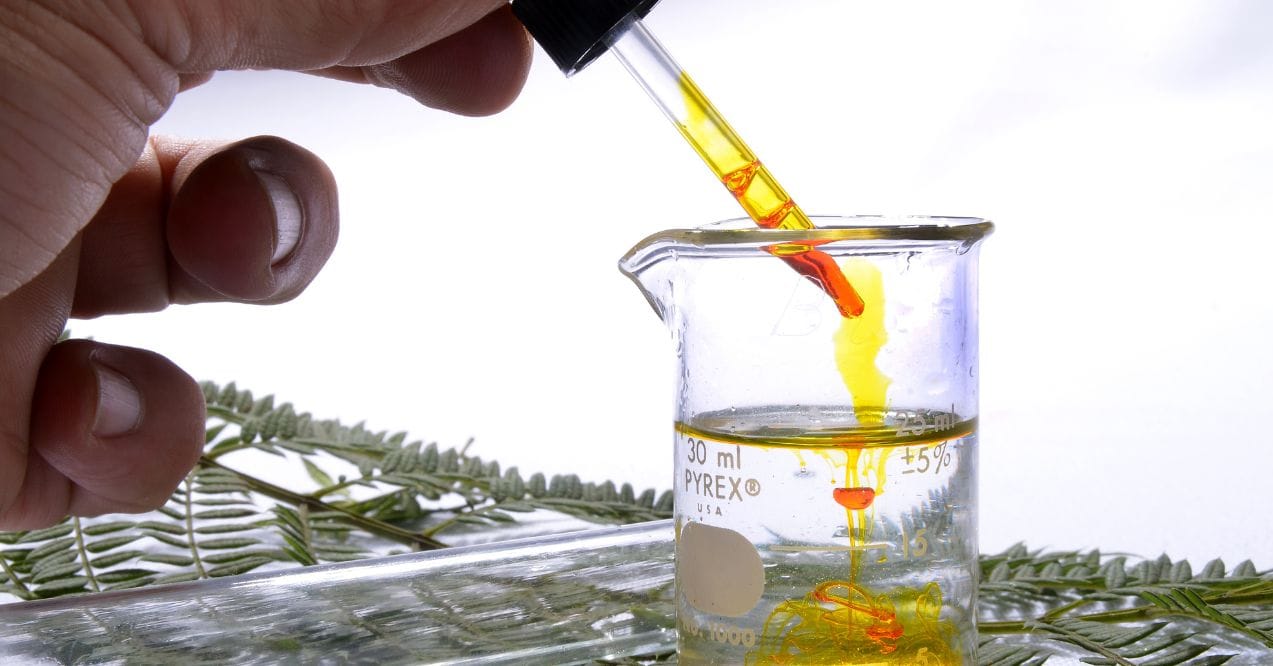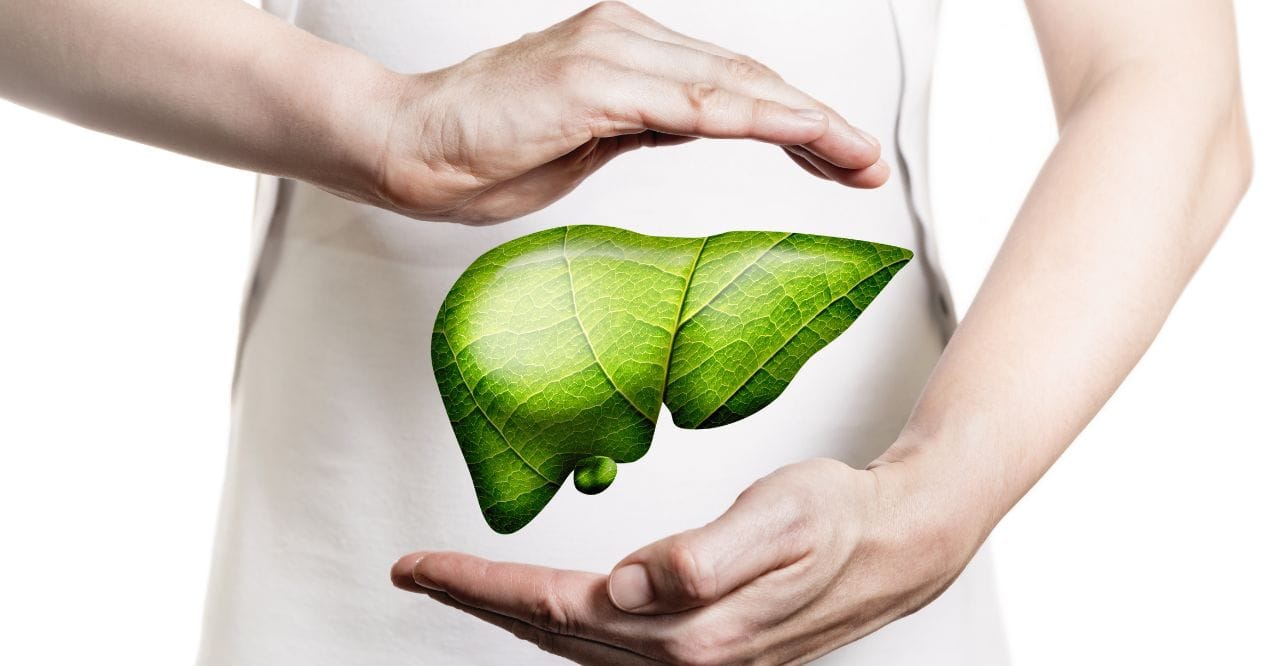What Is Turmeric Tea Good For?
Medically reviewed by our experts
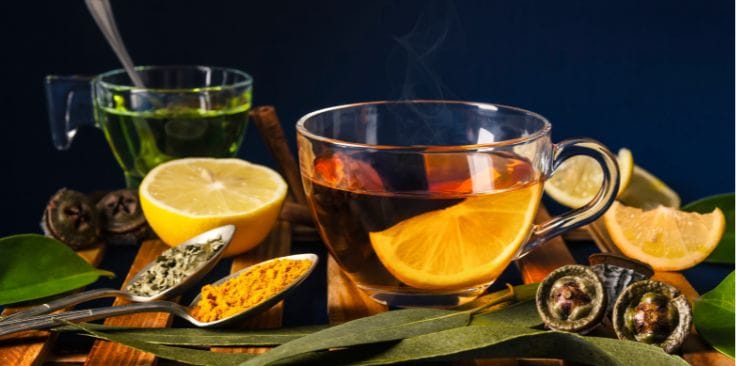

What is turmeric tea good for? This golden drink has gained popularity as a wellness staple, cherished for its distinctive flavor and potential benefits. Known for its vibrant color and roots in traditional practices, turmeric tea is enjoyed for its ability to support various aspects of health. From promoting digestion to supporting a balanced immune response, turmeric tea offers a soothing way to incorporate this ancient spice into daily routines.
What is Turmeric Tea?
Turmeric tea is a warm, golden-hued beverage made from the roots of the turmeric plant, known for its rich, earthy flavor and vibrant yellow color. Traditionally prepared using either fresh turmeric root or powdered turmeric, this tea offers a unique taste with subtle hints of spice.
Many recipes enhance the flavor and potential benefits by adding ingredients like ginger, which adds a touch of warmth and depth to the tea. Often enjoyed with a squeeze of lemon or a dash of honey, turmeric tea has become a popular choice for those seeking a soothing, natural drink
Turmeric Tea Benefits

So, what is turmeric tea good for? Turmeric offers several wellness benefits that have made it a favorite among health enthusiasts. Here are some key benefits of turmeric tea:
- Supports Joint Health – Turmeric tea benefits include supporting healthy joints. Curcumin in turmeric may promote joint comfort and mobility, which is helpful for staying active.
- Aids Digestion – Drinking turmeric tea could also support digestive health. Sipping on a warm cup after meals can soothe the stomach, adding to an overall feeling of well-being.
- Enhances Skin Radiance – The antioxidants in turmeric may help keep skin looking fresh and nourished. Including turmeric tea in your routine could contribute to a natural, healthy glow.
- Boosts Natural Defenses – Another benefit of turmeric tea is its potential to support the body’s natural defenses. Its antioxidant properties may help manage daily stressors and support vitality.
- Promotes Overall Wellness – Regularly enjoying turmeric tea brings natural wellness into your daily life. Its soothing flavor and health-supporting properties make it a simple addition to your routine.
Is Turmeric Tea Good for You?
Is turmeric tea good for you? Turmeric tea is valued for its holistic approach to health, promoting comfort, balance, and a sense of vitality. As a natural source of antioxidants, turmeric tea may help the body handle daily stressors, contributing to overall resilience.
Its warm and soothing properties make it a gentle option for those seeking natural ways to support joint comfort and digestive health. Turmeric tea’s versatility also means it can be enjoyed as part of a balanced lifestyle, making it a simple choice for those who prioritize well-being naturally.
Benefits of Turmeric Ginger Tea
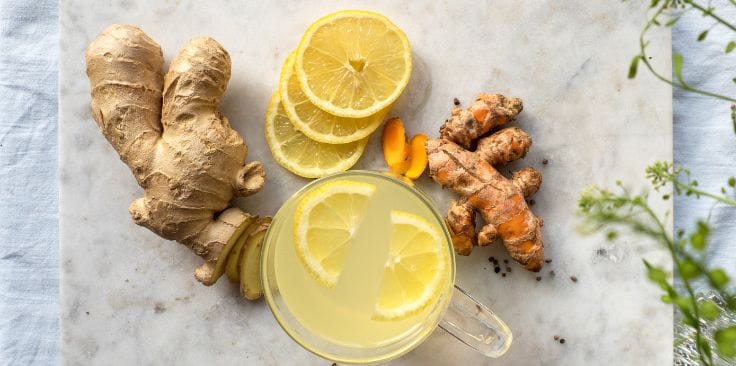
Adding ginger to turmeric tea enhances its flavor and provides additional health benefits. Here are some key turmeric ginger tea benefits to consider:
- Supports Digestive Health – Ginger has natural properties that may help ease digestive discomfort, making ginger turmeric tea a great choice for those seeking gentle digestive support.
- Promotes Joint Comfort – Both turmeric and ginger are known for their soothing qualities, which may help alleviate minor joint discomfort and support mobility.
- Boosts Immune System – The antioxidants in both turmeric and ginger can help the body manage daily stressors, which may support immune function and general well-being.
- Eases Nausea – Ginger is widely used to help with occasional nausea, making turmeric ginger tea a calming choice for sensitive stomachs.
- Enhances Circulation – Ginger’s warming effect on the body may help stimulate healthy circulation, adding to the overall revitalizing effect of this tea.
Adding Liver Renew for Additional Benefits
While turmeric tea offers numerous wellness benefits, combining it with Liver Renew can further support liver health and overall vitality. Endorsed by Lisa King RPh, Liver Renew is formulated with natural ingredients like Milk Thistle, which contains silymarin to support healthy liver function. It also includes Artichoke extract and Curcumin in Turmeric, known for their antioxidant properties that promote liver wellness.
By incorporating both turmeric tea and Liver Renew into your daily routine, you may enhance your body’s natural ability to maintain liver health. This combination supports the liver’s vital role in detoxification and metabolism, contributing to a sense of well-being and energy.
How to Make Turmeric Tea
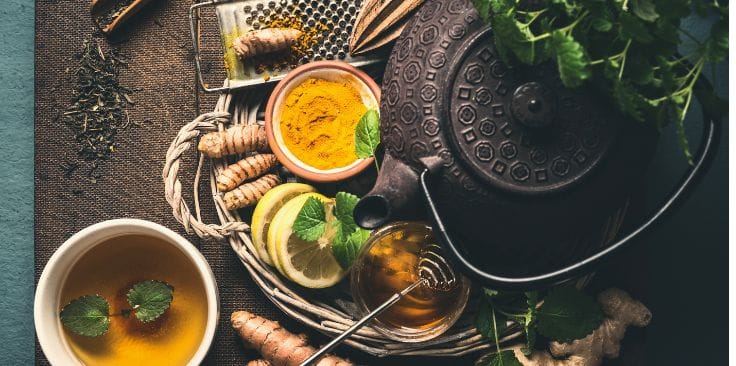
Creating turmeric tea at home is easy and lets you tailor the taste to your preference. Here’s a simple recipe:
Ingredients:
- 1 cup of water
- 1 teaspoon of ground turmeric or a 1-inch piece of fresh turmeric root, grated
Optional additions:
- 1/2 teaspoon of grated fresh ginger
- A pinch of cinnamon
- Honey or lemon to taste
Instructions:
- Bring the water to a boil in a small saucepan.
- Add the turmeric and optional ginger to the boiling water.
- Reduce the heat and let it simmer for 10 minutes.
- Strain the tea into a cup to remove any solids.
- Stir in cinnamon, honey, or lemon according to your taste preferences.
Enjoy your warm cup of turmeric tea, customized just the way you like it.
Conclusion
Understanding what is turmeric tea good for highlights its value as a simple, natural wellness drink. Known for its rich antioxidants and soothing properties, turmeric tea offers various supportive benefits, from promoting joint comfort to enhancing digestion. With the option to add ingredients like ginger or cinnamon, you can enjoy a warm cup tailored to your taste while reaping its holistic health benefits. Whether you’re new to wellness drinks or looking to expand your options, trying turmeric tea offers an easy way to bring a touch of nature’s support into your day. Enjoy its warmth and benefits daily.
Turmeric tea is known for its powerful antioxidant and wellness-promoting properties. It can support joint comfort, boost the immune system, and promote general vitality, making it a popular choice for daily wellness routines.
Yes, turmeric tea may support digestive comfort by encouraging a balanced digestive environment. Its natural compounds can promote healthy gut function, making it a beneficial addition to a daily diet.
Many people enjoy turmeric tea daily as part of a wellness routine. Regular consumption may promote ongoing benefits, but consult a health professional for personalized guidance on incorporating it into your routine.
Prasad, S., & Aggarwal, B. B. (2011). Turmeric, the golden spice. Herbal Medicine – NCBI Bookshelf.
Daily, J. W., et al. (2016). Efficacy of turmeric extracts and curcumin for alleviating the symptoms of joint arthritis: A Systematic Review and Meta-Analysis of Randomized Clinical Trials. Journal of Medicinal Food, 19(8), 717–729.
Rd, L. P. M. (2024). Turmeric Tea: 6 Benefits of this Anti-Inflammatory Wonder. Verywell Health.
Silver, N. (2023). Turmeric for skin: benefits and risks. Healthline.
WebMD Editorial Contributor. (2022). Turmeric tea: Is it good for you? WebMD.
Bodagh, M. N., et al. (2018). Ginger in gastrointestinal disorders: A systematic review of clinical trials. Food Science & Nutrition, 7(1), 96–108.
Rd, R. a. M. (2023). Can ginger and turmeric help fight pain and sickness? Healthline.
Kandola, A. (2024, July 26). How to relieve nausea naturally.
Rd, J. K. M. (2023, August 14). The 13 best foods to increase blood flow and circulation. Healthline.
Salekzamani, S., et al. (2018). The antioxidant activity of artichoke (Cynara scolymus): A systematic review and meta‐analysis of animal studies. Phytotherapy Research, 33(1), 55–71.
Farzaei, M., et al. (2018). Curcumin in liver Diseases: A systematic review of the cellular mechanisms of oxidative stress and clinical perspective. Nutrients, 10(7), 855.
Popular Articles
Advertisement. This site offers health, wellness, fitness and nutritional information and is designed for educational purposes only. You should not rely on this information as a substitute for, nor does it replace, professional medical advice, diagnosis, or treatment. If you have any concerns or questions about your health, you should always consult with a physician or other health-care professional. Do not disregard, avoid or delay obtaining medical or health related advice from your health-care professional because of something you may have read on this site. The use of any information provided on this site is solely at your own risk.
